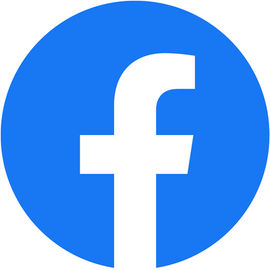
Simon Whitcombe, Facebook
As vice president, North America, global marketing solutions at Facebook, Simon Whitcombe oversees the company's partnerships with the likes of Amazon, Uber and Airbnb. At The Phocuswright Conference, he'll take part in an Executive Roundtable on the frictionless traveler journey.
In a series of interviews with executives participating at the event in Florida in November, PhocusWire finds out what makes them tick...
Do you agree with the often-used phrase, "travel planning is broken"?
There are many brands doing amazing work to facilitate discovery and planning, but the entire experience is still very disjointed with far too many touch points. Travel companies can do more to connect the full traveler experience to make it as seamless as possible.
Customers expect easy, friction-free experiences from start to finish, and they want brands to connect with them where they’re already spending their time - on mobile and, more and more, in messaging apps - in a direct and personalized way.
Does the industry or do travelers drive change?
It’s two-fold. The industry responds to the changing expectations of travelers, creating experiences, both online and offline, that drive loyalty and elevate the overall trip. At the same time, some companies are innovating ahead of the consumer.
Take ride-sharing - 15 years ago, you would have said I was crazy if I said hopping in a stranger’s car would be totally mainstream and the driver would be called on-demand.
What travel industry development or brand do you wish you'd thought of first?
This may sound simple, but I think the introduction of the paperless or electronic airline ticket was monumental to the industry. Not only did it reduce customer friction, it represented a fundamental shift in how travel companies were innovating digitally to provide better experiences for travelers.
If you could teach everyone in your company one concept, what concept would have the biggest positive impact?
The importance of creative. As advertising is powered more and more by machine learning and automation to drive the outcomes advertisers value most, creative is the way that brands will break through.
Subscribe to our newsletter below
We’re working with brands on creative testing approaches to get insights quickly and to evolve their processes to build for new mediums such as Stories and iterate quickly.
What can be done to make the travel industry more diverse in terms of race and gender in senior positions?
This is such an important topic that is relevant to all industries and something that’s really important to me and my team, and critical to our success as a company at Facebook.
Earlier this year, we shared our sixth annual Diversity Report - an overview on our year-over-year progress toward building a more diverse and inclusive culture. The report shows that we’ve made strong progress with women at all levels and roles, especially in leadership. But while we are encouraged by this momentum, we know there is much more we can and will do.
Three ways we’ve worked to achieve higher representation of women and diversity in leadership include:
1. Expanding the expectations we've set around diversity and inclusion for our leaders which increases the ownership and accountability of our leaders to develop and hire diverse talent.
2. Focusing on hiring and growing female leaders within the company (women in leadership is up year-over-year from 30% to 32%). Over the last several years, the majority of new female leaders at Facebook were internally promoted.
3. Broadly implementing and executing the Diverse Slate Approach (DSA).
Overall, creating and fostering the kind of workplace where people from all backgrounds have the opportunity to thrive and do the best work of their career is critical for building a diverse and inclusive company.
How much of your time do you try to keep unscheduled?
I currently keep 20% of my work day unscheduled. I aspire to move that number north of 30%.
Tell us something you dislike about your role in the company.
My best days are when I spend time in the field with our customers, but in my current role I get to do that less than I’d like.
If you woke up and had 2,000 unread emails and could only answer 300 of them, how would you choose which ones to answer?
Truthfully, I have 93,000 unread emails in my personal Gmail but that has more to do with the volume of spam than anything else. From a professional point of view, I’d prioritize emails where I could add tangible value or when a response from me was critical to move something forward for my team.
How do you book your travel?
Like most travelers, I use multiple platforms and brands to plan and book my travel. I get inspiration from platforms like Instagram or from friends and family based on their own experiences.
And as I’m often on the road, I lean toward booking with those providers that offer a smooth booking and service experience on mobile.
What do you do to alleviate stress?
Spending time with my wife and three boys. Walking our two dogs. Traveling California, the United States and Europe to watch our kids play competitive soccer. A few years ago I’d answer this by saying watching my beloved Manchester United but they are now so bad they’ve become their own unique source of stress.
Do you hit the snooze button?
Rarely, and if I do it's only once. It's also not possible to hit the snooze button on our chatty 7-year-old when he wakes me up at 5 a.m. every weekend.
Executive Roundtable: A Segment of One - Have We Arrived?
How far are we from a frictionless end-to-end journey that meets all of the traveler’s unique needs? To what extent do travelers want this, and how should travel providers be considering the need for privacy and security in the equation?